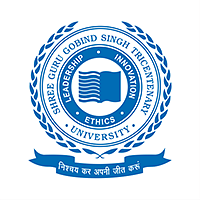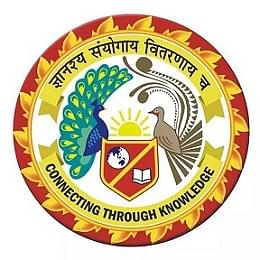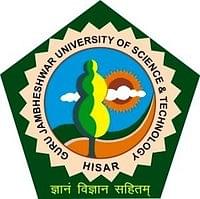Introduction
Microbiology is the branch of biology that focuses on the study of
microorganisms, which are microscopic organisms such as bacteria, viruses,
fungi, and protozoa. These organisms play crucial roles in various ecological,
industrial, and medical processes. Here's a brief introduction to microbiology:
1. Scope of Microbiology:
·
Bacteriology: Study of bacteria.
·
Virology: Study
of viruses.
·
Mycology: Study
of fungi.
·
Parasitology: Study of parasites.
·
Protozoology: Study of protozoa.
·
Microbial Genetics: Study of genetic material in microorganisms.
·
Immunology: Study
of the immune system.
2. Microorganisms:
·
Bacteria:
Single-celled prokaryotic organisms with diverse shapes and structures.
·
Viruses:
Non-cellular entities that require a host cell for replication.
·
Fungi:
Eukaryotic organisms, including yeasts and molds.
·
Protozoa:
Single-celled eukaryotic organisms with various motility mechanisms.
·
Algae:
Photosynthetic microorganisms often found in aquatic environments.
3. Significance of Microorganisms:
·
Ecological Roles: Microbes play vital roles in nutrient cycling, decomposition, and
maintaining ecological balance.
·
Industrial Applications: Used in the production of food, beverages, antibiotics, and various
other products.
·
Medical Importance: Involved in infectious diseases, as well as in the development of
vaccines and antibiotics.
·
Biotechnology: Microbes are employed in genetic engineering, fermentation processes,
and the production of biofuels.
4. Microbial Structure and Function:
·
Cell Structure: Microbial cells exhibit diverse shapes, sizes, and structures.
·
Metabolism:
Microorganisms can be autotrophic (synthesize their own food) or heterotrophic
(rely on external sources for nutrients).
·
Reproduction: Microbes reproduce through various mechanisms such as binary fission,
budding, and spore formation.
5. Microbial Growth and Control:
·
Environmental Factors: Microbial growth is influenced by factors like temperature, pH, and
moisture.
·
Control Measures: Strategies to control microbial growth include sterilization,
disinfection, and antimicrobial agents.
6. Disease and Immunity:
·
Pathogenic Microorganisms: Some microbes cause diseases in humans, animals, and plants.
·
Immune System: The body's defense mechanism against infections, involving various
cells and molecules.
7. Microbial Genetics:
·
Genetic Variation: Microorganisms exhibit genetic diversity through mutation,
recombination, and horizontal gene transfer.
·
Applications: Genetic studies aid in understanding microbial evolution, drug
resistance, and the development of genetically modified organisms.
Microbiology is a dynamic field with on-going
research contributing to advancements in medicine, biotechnology, and
environmental science. The study of microorganisms is crucial for understanding
life processes, disease mechanisms, and the development of innovative
technologies.
Microbiology admission
Admission to Best University in
the master in microbiology in Rajasthan programs, whether at the
undergraduate or graduate level, typically follows a standard process. Below, I
outline general steps and considerations for admission to microbiology
programs:
Undergraduate Level:
1. High School Education:
·
Ensure that you have completed the
required high school coursework in biology, chemistry, and other relevant
subjects.
·
Maintain a strong academic record.
2. Standardized Tests:
·
Some universities may require
standardized test scores, such as the SAT or ACT.
3. Application Process:
·
Submit an application to the university
or college offering the microbiology program.
·
Include transcripts, letters of
recommendation, and a personal statement expressing your interest in
microbiology.
4. Extracurricular Activities:
·
Participation in science-related clubs,
projects, or activities can enhance your application.
5. Interviews (if applicable):
·
Some Top Universities of the Rajasthan may conduct interviews as part of
the admissions process.
6. Prerequisites:
·
Check and fulfil any specific
prerequisites for the microbiology program.
Graduate Level (Master's or Ph.D.):
1. Bachelor's Degree:
·
Hold a relevant bachelor's degree,
often in microbiology, biology, or a related field.
2. Academic Performance:
·
Maintain a competitive GPA throughout
your undergraduate studies.
3. Letters of Recommendation:
·
Obtain strong letters of recommendation
from professors or professionals who can speak to your academic and research
capabilities.
4. Research Experience:
·
Research experience, especially if you
intend to pursue a Ph.D., is highly valued. Include details of any research
projects, publications, or presentations.
5. GRE (Graduate Record Examination):
·
Some graduate programs may require GRE
scores. Check the specific requirements of the institutions you're applying to.
6. Statement of Purpose:
·
Write a compelling statement of purpose
outlining your academic and research interests, career goals, and why you're
interested in the specific microbiology program.
7. CV/Resume:
·
Provide a comprehensive CV or resume
highlighting your academic achievements, research experience, and any relevant
skills.
8. Interviews:
·
Some graduate programs may require
interviews, especially for Ph.D. applicants.
9. Application Submission:
·
Submit your application through the
online application system of the respective universities.
10.
Financial Aid:
·
If you're seeking financial aid or
scholarships, ensure that you understand the application process for these
opportunities.
Always check the specific admission
requirements of the University of the
Rajasthan you're interested in, as requirements can vary. Additionally,
deadlines for applications and required tests should be carefully observed.
It's advisable to contact the admissions office for any clarification or
specific information about the microbiology program you're considering.
Microbiology eligibility
The eligibility criteria for microbiology programs can vary depending on
the educational level (undergraduate or graduate) and University of the Rajasthan. Here are general guidelines for
eligibility at both levels:
Undergraduate Level (B.Sc. Microbiology
or related programs):
1. Educational Qualifications:
·
Completion of higher secondary
education (12 years of schooling or equivalent).
·
A strong background in science
subjects, particularly in biology and chemistry, is often required.
2. Minimum Grades:
·
Institutions may have a minimum GPA or
percentage requirement for admission.
3. Entrance Exams (if applicable):
·
Some universities or colleges may
require students to take entrance exams specific to microbiology or related
fields.
4. Prerequisites:
·
Fulfilment of any specific
prerequisites set by the university hut, such as completing certain high school
courses.
Graduate Level (M.Sc. or Ph.D. in
Microbiology or related fields):
1. Bachelor's Degree:
·
A relevant bachelor's degree in
microbiology, biology, biochemistry, or a closely related field is typically
required for admission to master's or Ph.D. programs.
2. Minimum GPA:
·
Institutions often require a minimum
GPA for the undergraduate degree.
3. Research Experience (for Ph.D.):
·
Ph.D. programs may prefer applicants
with research experience. This can include undergraduate research projects, internships,
or other relevant experiences.
4. Letters of Recommendation:
·
Submission of strong letters of
recommendation from professors or professionals who can attest to your academic
and research capabilities.
5. GRE Scores (if required):
·
Some Affordable universities of the Rajasthan may require Graduate
Record Examination (GRE) scores. Check the specific requirements of the
programs you're interested in.
6. Statement of Purpose:
·
A well-written statement of purpose
outlining your academic and research interests, career goals, and why you're
interested in the specific microbiology program.
7. CV/Resume:
·
A comprehensive CV or resume
highlighting academic achievements, research experience, and any relevant
skills.
8. Interviews:
·
Some programs may require interviews,
especially for Ph.D. applicants.
9. English Language Proficiency:
·
For international students, proficiency
in English is usually required. This can be demonstrated through standardized
tests like the TOEFL or IELTS.
Always check the specific eligibility
criteria of the University of the
Rajasthan and programs you're interested in, as requirements can vary.
Additionally, some programs may have specific requirements or preferences
regarding the type and duration of previous academic or research experiences.
Contact the admissions office of the university hut for accurate and up-to-date
information on eligibility criteria.
Microbiology syllabus
The specific syllabus for microbiology courses can vary between
universities and academic levels. However, I can provide a general overview of
topics commonly covered in microbiology syllabi at both undergraduate and
graduate levels. Keep in mind that this is a broad overview, and the actual
content may vary depending on the course and institution.
Undergraduate Microbiology Syllabus:
1. Introduction to Microbiology:
·
Historical perspective
·
Overview of microorganisms and their
significance
2. Microbial Cell Structure and Function:
·
Prokaryotic and eukaryotic cell
structures
·
Cell division and growth
3. Microbial Genetics:
·
DNA replication, transcription, and
translation
·
Gene regulation and mutations
4. Bacteriology:
·
Classification and identification of
bacteria
·
Bacterial metabolism and ecology
5. Virology:
·
Structure and classification of viruses
·
Viral replication and pathogenesis
6. Mycology:
·
Fungal morphology and classification
·
Fungal diseases and ecology
7. Parasitology:
·
Classification of parasites
·
Parasite-host interactions
8. Immunology:
·
Innate and adaptive immunity
·
Immunological techniques
9. Microbial Ecology:
·
Interactions between microorganisms and
their environments
·
Biogeochemical cycles
10.
Medical Microbiology:
·
Pathogenic microorganisms and
infectious diseases
·
Diagnostic techniques and control
measures
11.
Applied Microbiology:
·
Industrial applications
·
Biotechnological processes
12.
Laboratory Techniques:
·
Aseptic techniques
·
Microbial staining and culturing
Graduate Microbiology Syllabus (M.Sc.
or Ph.D.):
1. Advanced Microbial Genetics:
·
Advanced study of genetic mechanisms in
microorganisms
2. Molecular Biology:
·
Molecular techniques in microbiology
·
Recombinant DNA technology
3. Microbial Physiology:
·
Metabolism and regulation in
microorganisms
4. Advanced Virology:
·
Molecular virology
·
Emerging viral diseases
5. Advanced Immunology:
·
Cellular and molecular aspects of immunity
·
Immunological disorders
6. Environmental Microbiology:
·
Microbial interactions in the
environment
·
Microbial bioremediation
7. Microbial Pathogenesis:
·
Mechanisms of pathogenicity
·
Host-microbe interactions
8. Bioinformatics in Microbiology:
·
Application of bioinformatics tools in
microbial research
9. Research Methods:
·
Experimental design and statistical
analysis
·
Literature review and scientific
writing
10.
Seminar/Thesis:
·
Independent research project or thesis
work
These topics provide a general framework
for the microbiology syllabus at different academic levels. The actual syllabus
may include additional specialized topics or exclude some depending on the
specific focus of the course or program. Always refer to the course outline
provided by the university hut for the most accurate and up-to-date
information.
Microbiology scholarship
Finding scholarships for microbiology can be a great way to support your
education in this field. Scholarships are offered by various organizations, institutions,
and foundations to help students pursue their academic and research goals. Here
are some ways to find microbiology scholarships:
1. University Scholarships:
· Check with the microbiology or biology department of the University of
the University Hut you plan to attend. Many universities offer scholarships for
students majoring in microbiology or related fields.
2. Professional Organizations:
· Explore scholarships provided by microbiology-related professional
organizations, such as the American Society for Microbiology (ASM), Society for
General Microbiology, and others.
3. Government Programs:
· Some government agencies offer scholarships or grants for students
pursuing degrees in science, including microbiology. Check with your country's
education or science department.
4. Private Foundations:
· Look for scholarships offered by private foundations and non-profit
organizations that support education and scientific research.
5. Pharmaceutical and Biotech
Companies:
· Some companies in the pharmaceutical and biotechnology industries offer
scholarships to students interested in microbiology.
6. Online Scholarship Databases:
· Explore scholarship databases like Fastweb, Chegg, or Scholarship.com,
where you can search for microbiology-related scholarships.
7. ASM Undergraduate Research
Fellowship:
· The American Society for Microbiology (ASM) offers the ASM Undergraduate
Research Fellowship for students interested in microbiology research.
8. Sigma Xi Grants-in-Aid of Research:
· Sigma Xi, The Scientific Research Honor Society, provides Grants-in-Aid
of Research to support student research projects, including those in
microbiology.
9. Fulbright Scholarships:
· Explore international opportunities, such as Fulbright Scholarships,
which support academic exchanges and research projects.
Always check the eligibility criteria,
application requirements, and deadlines for each scholarship. Prepare a strong
application that highlights your academic achievements, research experience,
and passion for microbiology. Additionally, consider contacting the financial
aid office at your university hut for information on available scholarships and
grants.












